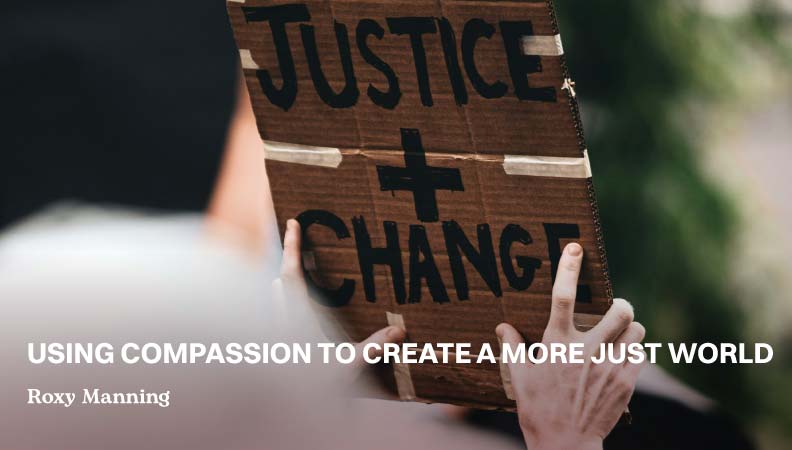
Responding to Anti-Semitism and Islamophobia in the Context of the Crisis in Israel/Palestine
with Nadya Mahmud Giol and Roberta Wall- Listen to each other in a safe space for connection, sharing and exploring how we all are doing in this situation
- Develop capacity to express and hear fears without judging, blame or shame
- Plant seeds of peace and reconciliation for a world where everyone’s needs are heard and valued
- Experience how deep listening and heart-to-heart sharing bridge divides
Additional Info
- Start Date Begins Wednesday, June 26, 2024
- Duration 4 hours (2 hours per session)
- Sign Up URL /registration/signup/NM-RW-anti-semitism-islamophobia-2024
- Gift URL /registration/signup/NM-RW-anti-semitism-islamophobia-2024-gift
- Header Image

- Bullets
- Listen to each other in a safe space for connection, sharing and exploring how we all are doing in this situation
- Develop capacity to express and hear fears without judging, blame or shame
- Plant seeds of peace and reconciliation for a world where everyone’s needs are heard and valued
- Experience how deep listening and heart-to-heart sharing bridge divides
- Dates & Times
Wednesdays, June 26-July 10, 2024 (two sessions)
9:00-11:00am Pacific (California) Time
This course will be offered in English, with simultaneous translation to Arabic and Hebrew.
The live course is complete. You can register to receive access to the recorded sessions. - Bonuses
- Video and audio recordings of every session
- Forum discussion available in the classroom
- Lifetime access to the classroom
- Translated captions available in 30+ languages
- Empathy and expression handouts, and feelings/needs list handouts
- Payment
Registration Fee:
Early Bird 20% discount: $78 until June 6 ($97 after)
NVC Library members: $62 until June 6 ($78 after)*
*NVC Library members get 20% off their registration fee using code NVCL at time of checkout - Dates Table
The live course is complete. You can register to receive access to the recorded sessions.
- What Happens After I Register?
When you register, you will receive an email with complete instructions on how to access your course.
Note that course recordings display images of active speakers only, and are made available to all registrants.
Feelings and Needs form the cornerstone of Nonviolent Communication (NVC), offering a profound framework for cultivating empathy, compassion, and authenticity in our interactions. This comprehensive 9-page Feelings and Needs Reference Guide is designed to support you in integrating these vital concepts into your daily life.
Additional Info
- Skill Level Beginner Skill Level
- Duration 10 minutes
- Production Date 4/30/2024
Feelings and Needs form the cornerstone of Nonviolent Communication (NVC), offering a profound framework for cultivating empathy, compassion, and authenticity in our interactions. This comprehensive 9-page Feelings and Needs Reference Guide is designed to support you in integrating these vital concepts into your daily life.
Additional Info
- Skill Level Beginner Skill Level
- Duration 10 minutes
- Date Added 04/30/2024
- Premium Members
n/a
- Payee NVC Academy
- Points 1
- Multi Trainer Num 1
I’ve been part of a fitness group here in California for the past 1.5 years. It’s called Boot Camp, and I have no idea why! Anyway, most people in the class are 25-30 years younger than I am and have been part of this group for several years. I don’t lift weights as heavy as theirs and I can’t always keep up with them, but I had felt confident that I was holding my own (except when jogging, which is the one place where I consistently lag far behind them). I found a way to be okay with this, to enjoy working out with them, without thinking I should be as strong or skilled as they are.
Additional Info
- Skill Level Intermediate Skill Level
- Duration 2 minutes
- Date Added 04/2024
- Premium Members
n/a
- Points 1
- Multi Trainer Num 1
Here are seven self inquiry questions. Half of them can help you assess your NVC consciousness. The other half can help you move from pain, fear, resistance, judgement, criticism, and shame – to love, compassion, understanding, appreciation, curiosity, and more.
Additional Info
- Skill Level Beginner Skill Level
- Duration 1-2 mins
- Date Added 8/21/2024
- Premium Members
n/a
- Payee Katrina Vaillancourt
- Points 1
- Multi Trainer Num 1
- Support a world where everyone is valued
- Create change in your community using nonviolence
- Communicate your strong beliefs with compassion
- Build a network, get support, practice your skills
Additional Info
- Start Date Begins Wednesday, October 9, 2024
- Duration 12 hours (2 hours per session)
- Sign Up URL /registration/signup/RM-create-a-more-just-world-2024
- Gift URL /registration/signup/RM-create-a-more-just-world-2024-gift
- Header Image

- Bullets
- Reimagine the systems in your communities
- Drive social change centered on nonviolence
- Identify the steps to take to create lasting change
- Find new allies to strengthen your mission
- Dates & Times
Wednesdays, October 9-November 13, 2024 (six sessions)
9:00-11:00am Pacific (California) Time• What time is it in your location?
Online via Zoom - Bonuses
- Video recordings of every session
- Forum discussion available in the classroom
- Lifetime access to the classroom
- Translated captions available in 30+ languages
- Payment
Registration Fee: $462
NVC Library members*: $370
*NVC Library members get 20% off their registration fee using code NVCL at time of checkout - Dates Table
Dates and times are adjusted to your location. You can select a different time zone at the bottom of the list.
- What Happens After I Register?
When you register, you will receive an email with complete instructions on how to access your course.
Note that course recordings display images of active speakers only, and are made available to all registrants.
 |
|
Additional Info
- Start Date Begins Thursday, June 6, 2024
- Duration 8 hours (2 hours per session)
- Sign Up URL /registration/signup/MM-listening-with-the-heart-2024
- Gift URL /registration/signup/MM-listening-with-the-heart-2024-gift
- Header Image

- Bullets
- Experience the emotional relief of being heard
- Learn the connection-creating skill of empathy
- Let go of right and wrong thinking
- Transform your world, one interaction at a time
- Dates & Times

Thursdays, June 6-27, 2024 (four sessions)
9:00-11:00 am Pacific (California) TimeThe live course is complete. You can register to receive access to the recorded sessions.
- Bonuses
- Get an empathy buddy if you’d like to! Practice your new skills with another participant.
- Video and audio recordings of every session
- Forum discussion available in the classroom
- Lifetime access to the classroom
- Translated captions available in 30+ languages
- Payment
Registration Fee: $213
NVC Library members: $171*NVC Library members: use code NVCL at time of checkout
- Dates Table
The live course is complete. You can register to receive access to the recorded sessions.
- What Happens After I Register?
When you register, you will receive an email with complete instructions on how to access your course.
Note that course recordings display images of active speakers only, and are made available to all registrants.
Additional Info
- Duration 15 min 12 sec
- Date Added 8/6/2024
- Premium Members n/a
- Payee Itzel Hayward & Kathy Simon
- Points 2
- Multi Trainer Num 1
First, on the personal side… I’ve already planted half of my vegetable garden and it was so completely enjoyable. Remember how challenging this was for me a couple of years ago? My inner jackal did have a few things to say this year, but not nearly as many as in past years. And, I gave her loads of empathy so we made it through. I am thrilled about this. I can’t wait to see my seedlings pop up! If it’s a successful garden, I’ll share pictures in a future letter.
Additional Info
- Skill Level All Skill Levels
- Duration 2 Minutes
- Date Added 4/01/2024
- Premium Members
n/a
- Points 0
- Multi Trainer Num 1
Yoram Mosenzon shares an exercise and demo to explore the process of identifying observations and using judgements (jackals) to find the needs.
Additional Info
- Duration 15 min 41 sec
- Date Added 3/26/2024
- Premium Members n/a
- Payee Yoram Mosenzon
- Points 1
- Multi Trainer Num 1


